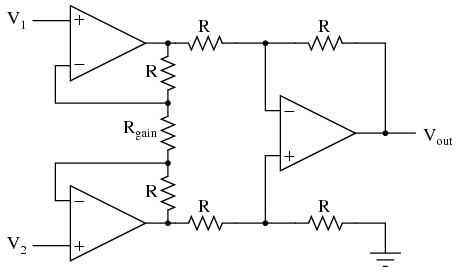EE1C31 Amplifiers and instrumentation
This course introduces the basics of electronic circuits for processing and amplification of information-carrying signals, and the basics of electronic instrumentation: the acquisition of (non-electrical) information, the conversion of this information to the electrical domain by means of sensors, and the processing and digitization of this information. The course adopts a top-down approach to amplifier design. First, the processing of signals using nullor-based circuits is introduced, which provides an implementation-independent approach to the design of amplifier circuits. Then, implementations of the nullor are introduced, based on the operational amplifier (opamp) and based on single-transistor circuits using bipolar transistors and field-effect transistors. The course covers the analysis of measurement problems and the specification of measurement systems. Various common sources of measurement errors and the concept of uncertainty in measurement results are introduced. Several important instruments for electrical measurements are discussed. Moreover, a number of commonly-used sensors for the measurement of non-electronic quantities are introduced, as well as electronic circuits for the readout of these sensors, including opamp-based readout circuits, instrumentation amplifiers, and analog-to-digital converters.
Teachers
dr.ir. Michiel Pertijs
Sensor interface circuits, smart sensors, ultrasonic imaging, acoustic sensors, energy efficiency, ultra-low power design, (self-)calibration techniques, capacitive sensors, precision analog circuits.
dr. Tiago Costa
Analog and mixed-signal circuit design, Microfabrication, Microsystem Integration, Focused ultrasound neuromodulation, Neuroelectronics, Brain stimulation.
dr. Jaap Hoekstra
Electronic Design
Last modified: 2025-09-13
